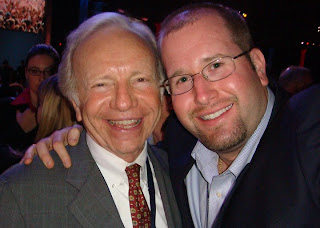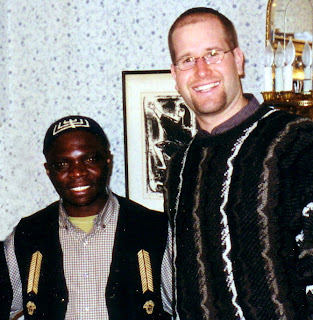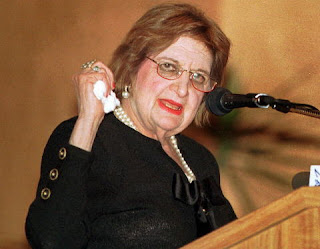Cross-posted to the Huffington Post
How does one know when someone’s comment is anti-Semitic? I suppose it’s the same as how United States Supreme Court Justice Potter Stewart explained pornography in the 1964 case of Jacobellis v. Ohio: “I know it when I see it.”
There have been several high profile examples of anti-Semitic outbursts recently. And like famous anti-Semitic rants in the past, there has been much debate as to whether these recent cases should be classified as anti-Semitic. In all of these instances, one could argue that “I know it when I see it.”
There are times when a celebrity makes a poor choice, but is likely not being intentionally anti-Semitic. Examples are when Roseanne Barr dressed as Adolf Hitler and posed for a magazine and when Prince Harry went to a costume party in a Nazi uniform. However, when Mel Gibson repeatedly espoused his anti-Jewish feelings, there was no question about his motivation or true feelings.
In recent days, we’ve heard questionable comments by Charlie Sheen and Glenn Beck. We’ve seen video footage of Dior designer John Galliano expressing his love for Hitler and berating innocent people with anti-Semitic slurs. And a recent report said that WikiLeaks founder Julian Assange suggested that British journalists, including the editor of The Guardian, were engaged in a Jewish-led conspiracy to smear his organization.
Charlie Sheen, who continues to prove that his “Wild Thing” character in the movie “Major League” was pretty close to his real persona, referred to the executive producer of “Two and a Half Men” by his Hebrew name. Rather than calling him Chuck Lorre, Sheen referred to him as “Chaim Levine” and raised red flags throughout the media and in Jewish organizations. Not only has Sheen denied that there was any anti-Semitic undertone in his rant, he is now requesting that the Anti-Defamation League and its director Abe Foxman apologize to him for condemning his remarks.
It’s pretty obvious that Sheen’s not getting very good PR counsel these days (if any at all) because he expressed his admiration for Mel Gibson in an interview with Howard Stern. I don’t think Mel Gibson is the guy you want to bring into your corner when you’ve been accused of an anti-Semitic rant.
Glenn Beck recently apologized for his insult to Reform Jews. The Fox News talking head said Reform rabbis are “almost like radicalized Islam.” He was responding to a letter condemning his virulent attack on George Soros. I was one of several non-Reform rabbis who signed the letter urging Fox News to fire Beck. While I don’t agree with Soros’ politics and certainly find his views on Israel to be troubling, I understood Beck’s comments about Soros (comparing him to the Nazis) to be anti-Semitic in nature. While Beck will likely never apologize for his Soros tirade, it is telling that he apologized to the angered Reform (not “Reformed” as Beck called them) rabbis.
The anti-Semitic comments by Christian Dior designer John Galliano in a shocking videotape (see below) were quite obviously anti-Semitic. Dior has fired him for his hateful comments and he was arrested by French police over allegations that he abused a couple in an angry, drunken, anti-Semitic diatribe. Oscar winner Natalie Portman who represents Dior in perfume ads said she was disgusted with John Galliano over his anti-Semitic rants. In a written statement, Portman said, “In light of this video, and as an individual who is proud to be Jewish, I will not be associated with Mr Galliano in any way.”
Finally, Julian Assange’s comments seemed to be more paranoia than anti-Semitism. He suggested that British journalists were conspiring to smear his organization. The NY Times reports that Assange “was especially angry about a Private Eye report that Israel Shamir, an Assange associate in Russia, was a Holocaust denier. Mr. Assange complained that the article was part of a campaign by Jewish reporters in London to smear WikiLeaks.”
While Assange’s accusation does sound like the age-old charge that the Jews own and run the media, it might not be anti-Semitic. Rather, Assange is probably feeling like everyone is out to get him after the recent WikiLeaks dumps of classified information.
Are anti-Semitic comments on the rise? I don’t think so. Rather, there has been a trend of high-profile individuals making anti-Semitic statements. It’s entirely possible that these hate-filled tirades reveal the true sentiments of these celebrities. Hopefully, they will apologize for their outbursts and be more dignified and sane in the future.








